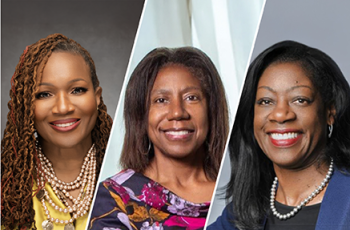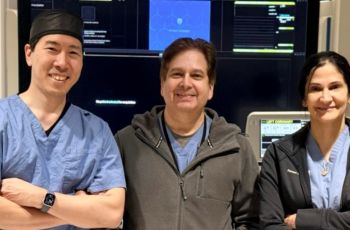WASHINGTON (Mar. 27, 2017)—Researchers at the George Washington University (GW) School of Medicine and Health Sciences found a majority of first-year medical students changed their online behavior after participating in a social media and professionalism course. The study results show that a formal education on responsible social media use is beneficial to medical students as they develop professional habits that are inclusive of social media, and look to avoid behavior that would be detrimental to their careers.
The study, published in Teaching and Learning in Medicine, includes analysis of social media and professionalism courses hosted in 2012-2014. A six-month follow-up survey found 94 percent of students reported increased awareness of their social media behavior as it relates to their careers and 64 percent made changes to their social media behavior as a result of the session.
The course was designed and led by Alexandra Gomes, M.S.L.S., M.T., associate director for education, information and technology services, and Gisela Butera, M.L.S., reference librarian, both at Himmelfarb Health Sciences Library at GW, as well as Terry Kind, M.D., M.P.H., assistant dean for clinical education and associate professor of pediatrics, and Katherine Chretien, M.D., assistant dean for student affairs and associate professor of medicine, both at the GW School of Medicine and Health Sciences.
During the social media and professionalism course, instructors aim to “empower students to learn how to use social media professionally and responsibly so that they can use it to their greatest advantage,” explained Chretien. The course is not meant to dissuade students from using social media, but rather encourages discussion about opportunities and challenges.
“We were able to move past a focus on negative and highlight the positive ways that social media can be used to enhance students’ professional lives,” said Kind.
The team found that discussion and explanation of professionalism on social media must put emphasis on both negative and positive examples of usage, along with a framework for interpreting the gray areas in between. With the right components in place for a formal session—such as a professional panel—students can better understand how to use their personal social media identities to show their new professional identities. The course is offered to all first-year students at the GW School of Medicine and Health Sciences as a required part of the curriculum.
“The Development and Impact of a Social Media and Professionalism Course for Medical Students” is published in Teaching and Learning in Medicine.


